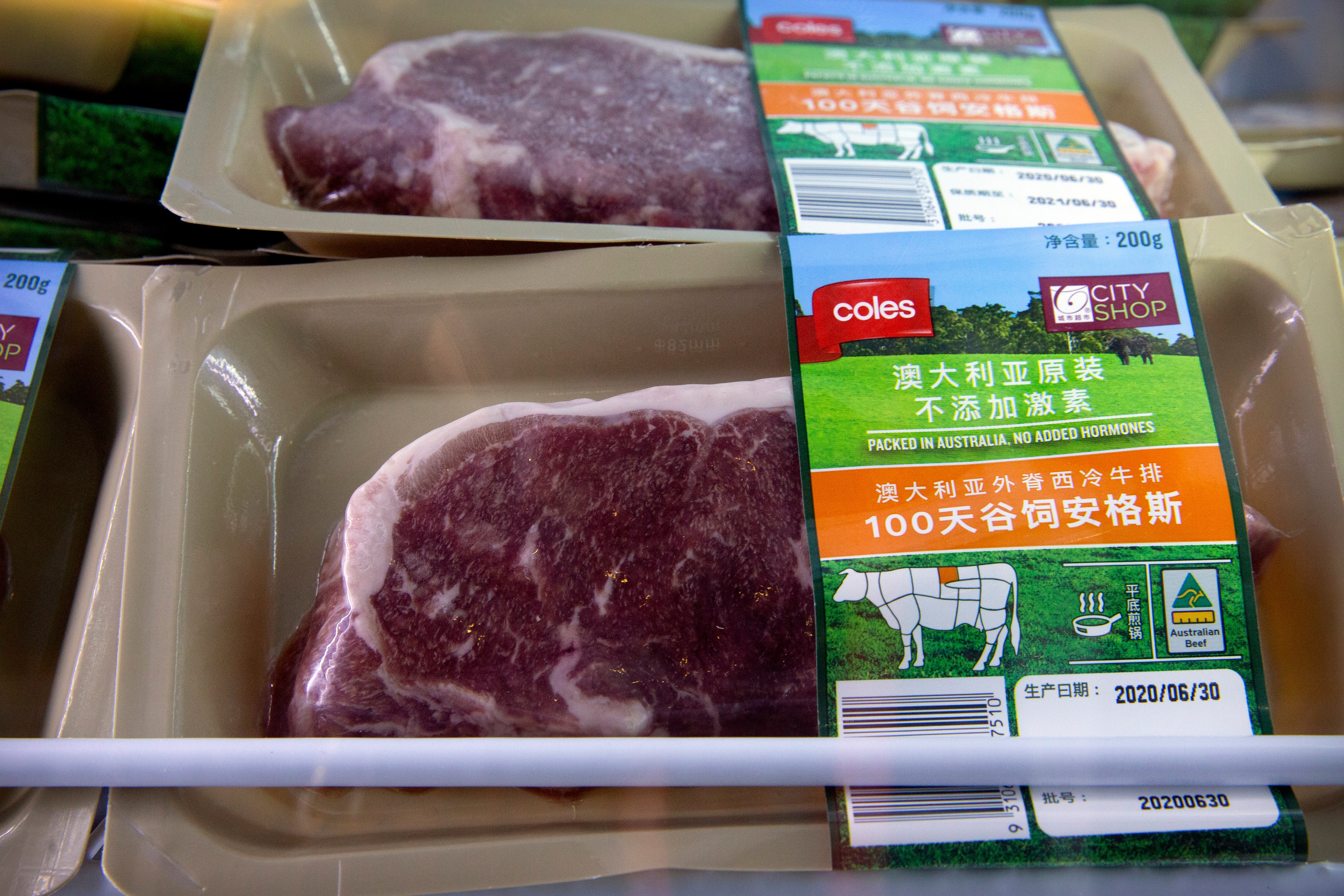China defends food import controls to curb virus
China’s government is defending anti-coronavirus controls that have disrupted imports of beef, poultry and fish from the United States, New Zealand and other trading partners

Your support helps us to tell the story
From reproductive rights to climate change to Big Tech, The Independent is on the ground when the story is developing. Whether it's investigating the financials of Elon Musk's pro-Trump PAC or producing our latest documentary, 'The A Word', which shines a light on the American women fighting for reproductive rights, we know how important it is to parse out the facts from the messaging.
At such a critical moment in US history, we need reporters on the ground. Your donation allows us to keep sending journalists to speak to both sides of the story.
The Independent is trusted by Americans across the entire political spectrum. And unlike many other quality news outlets, we choose not to lock Americans out of our reporting and analysis with paywalls. We believe quality journalism should be available to everyone, paid for by those who can afford it.
Your support makes all the difference.China’s government on Wednesday defended anti-coronavirus controls that have disrupted imports of beef, poultry and fish from the United States, New Zealand and other trading partners.
Customs officials who say the coronavirus has been found on frozen meat and on packaging have imposed temporary suspensions on suppliers. That prompted complaints by China’s trading partners.
The “reasonable and justifiable” curbs are intended to protect public health, foreign ministry spokesman Zhao Lijian said.
China where the pandemic began in December, declared the disease under control in March. It is trying to prevent new outbreaks caused by the virus being imported by travelers or on food.
“The relevant measures China took are necessary following the spirit of putting people’s lives first and protecting people’s health,” Zhao said.
Prime Minister Jacinda Ardern of New Zealand expressed confidence this week her country hadn’t exported meat with the virus after Chinese authorities said it was found on beef and packaging from Bolivia, Brazil and New Zealand.
In June, China temporarily suspended the import of chicken from U.S.-based Tyson Foods Inc. after the virus was found at one of its farms.
Other importers affected are from Argentina, Ecuador, India, Indonesia, the Netherlands and Russia. Other products include salmon and pork.